|
I’m excited to share that we’re once again growing our team!
We’re in the final stages of taking over operations of the Downtown Eastside Street Market, and are looking to hire a Market Manager to oversee this new program. The DTES Street Market has been operating since 2012 in order to provide safe, low-barrier vending and income generation opportunities for residents of the DTES. The Market is City-funded and supported by the City of Vancouver’s Community Economic Development Strategy and DTES Plan. After consultation with the binners in our membership, we decided that operating the Street Market would be an exciting opportunity to further our mission to improving economic opportunities for binners and those working in the informal economy. The Market Manager will be responsible for overseeing all market operations, including scheduling peer workers, meeting regularly with both vendors and peers, and administrative duties like reconciling cash and tracking market metrics. This is a great opportunity for someone with experience working with marginalized populations, who is looking to expand their leadership skills through direct impact with the community. This is a full-time position with a salary range of $55,000-$60,000. You can find more info on the job posting here. Please share widely with your networks – interviews will be conducted as applications come in as we are hoping to hire someone as soon as possible. Sincerely, Sean Director
2 Comments
Dear Mayor Stewart and Council,
I’m writing today in regards to the fee placed on single-use cups on January 1, 2022. Binners’ Project strongly opposes the continuation of this fee as we have seen that it disproportionately impacts people in poverty. Over the nearly eight years since the first Coffee Cup Revolution in 2014, Binners’ Project has positioned itself as experts in the use and recycling of coffee cups, advocating for innovative ways to include binners in reducing the amount of cups ending up in our landfills. As a result, we were disappointed in the announcement of the bylaw, and the lack of strategic inclusion of marginalized voices in its development. As you can imagine, people in poverty experience significant barriers to participating in many types of environmental solutions given the often high cost to the individual. Additionally, poverty prohibits many from obtaining and maintaining reusable items like coffee mugs. As a result, the addition of surcharges to single-use items disproportionately impacts poor people by requiring them to pay into the system without any alternative. This means that they, almost singularly, ultimately become responsible for funding any type of mug-sharing system a business might incorporate, a system in which many will face barriers to participating. We also know that Extended Producer Responsibility best practices do not put the onus onto the consumer to mitigate the issues related to waste. These practices acknowledge the financial responsibility ought to be on the producers of cups, many of which are large multinational corporations. In fact, research used by Staff in the development of this policy has shown that penalizing customers with fees is less effective on changing behaviour than rewarding customers with either a reduction in cost (if the customer comes with an alternative), or the option for a refund. While the report coming to you on Wednesday acknowledges additional work needs to take place over the next 18 months, any potential mitigating solutions to these equity issues will take too long to create and implement, while in the meantime people in poverty will continue to pay into a system that will otherwise never benefit them. This 18 month time period before a report-back from Staff will cause more harm to this already marginalized and vulnerable community. Additionally, what’s missing from this report are the thousands of voices of people in poverty who are often politically invisible. They are not the ones calling and emailing complaints in part because they have repeatedly been subject to disenfranchisement by inequitable policies. The absence of these voices in the development of this policy was a great oversight. The absence of them now in your email boxes is not a measure of their apathy – it’s a measure of their learned helplessness. There is no national precedent for a cup fee in reducing waste. When changes like this are proposed, evidence and community informed best practices need to be utilized to make sure that innovations we make as a city serve as an example for others around the world to replicate. The length of time spent on developing this policy was not enough to ensure that it was done well, with both an equity and environmental framework in mind. We urge Council to remove the fee on single-use cups while more innovative and equitable solutions are determined in the interim. Thank you for your attention to this matter – I will be speaking at the Standing Committee meeting on Wednesday, and look forward to discussing this further then. Sincerely, Sean Miles Director, Binners’ Project First off - thank you to everyone who has donated so far, we’ve already raised $1,745! Don’t miss out on helping us reach our $5,000 goal - donate here.
Next up this week is Shirley, who has been a member since 2018 and is one of our Team Leads. Here’s a bit from my chat with her. Q: What’s your favourite thing about working with Binners’ Project? Reducing a lot of garbage into nothing. We get 10 bags of garbage and turn it into two bags, so it’s cool to see that we’re making a difference. One of our clients came out and saw we had so many bags going in and only came out with two and was so impressed. She goes: “It’s unreal, I never thought that much could be composted.” But there’s a lot in there that can be composted. Q: Last week you helped do an online workshop with some students. How did that go? It was a lot of fun. We got to listen to the kids, and we got to tell our stories. Some of the kids appreciated it and they asked me what I was going to do after COVID was all over, and I said hopefully I can get back to my job at the Convention Centre. That was my favourite spot. We always had regular work there. Q: What’s something else you’re excited about post-COVID? Going out and walking around like normal again, and not having to wear a mask. I get freaked out when people don’t wear masks on the bus, and the busses are starting to get really full these days, so sometimes I get out and wait for another one. I’m excited to not have to worry about that anymore. -- Thanks for following along, and I’m excited to share a few more stories with you next week. We only have 2 more weeks to reach our $5,000 goal – donate now. Let me tell you a little about Francis.
Even though this past year was tough, Francis continued to thrive in his role with Binners’ Project and he was officially promoted to Coordinator this year. We’re currently fundraising $5,000 to support the continued employment of binners like Francis – please donate now. I had a moment to chat with Francis about how this year has gone for him and here are some highlights: Q: What was the last year like for you? Very very hard. It affected everything in my life because I don’t have a lot of family members here. There was no social interaction, nowhere to go. A lot of my friends can’t visit each other. I have friends in Surrey and in Coquitlam, but I have not seen them up to now. We will talk on the phone, but you can’t go and visit. And it’s really hard because instead of my family, these are the people I would meet every day. Q: How did Binners’ Project help you this year? Without Binners’ Project I don’t know what else I was going to do. Binners’ helped a lot because it made me come out of my shell. You’ve got some people to talk to, some people you have something in common with, who you can relate to. You can work with them, and get to know them and they become friends; they become like part of the family. Q: What’s something you’re looking forward to once the pandemic is over? I’m excited for Binners’ Project to be open for business 100%, and people are working every day. Once things start opening up, people are going to start asking us to come sort their waste for them and we’ll get more work. We’ve been working with some of these companies and they’re responding very positively, so I’m looking forward to getting more work soon. -- I hope you’ll consider donating to support our employment programs that serve to provide people like Francis meaningful, low-barrier work opportunities. Donate today, and help us reach our $5,000 goal. I have some news – after a wonderful experience directing Binners’ Project and its team, I have decided to move on and have accepted another position.
In the interim, while our Steering Committee embarks on a search for a new, permanent Director, long-time Binners’ Project staff, Brianne De Man will be stepping in as Interim Director. Brianne has been with Binners’ Project for 4 years, joining the team in an operations position in early 2017. She’s been managing communications, fundraising, finance, and strategy for the past 2 years and holds a great amount of institutional knowledge and insight on how to continue putting binners first in our programs and advocacy efforts. I have confidence that the Project will be in excellent hands. We’ll share more information soon once the new posting is live - so stay tuned for that. It’s always a tough decision to leave colleagues and work that I hold so dear, and it’s been an incredibly humbling experience to continue working in the Downtown Eastside, a community I cherish. However, I have so much faith in the team of binners we have and the core staff who support them and am excited to see what the next chapter of Binners’ Project brings. I will continue to be a diehard supporter of this work, as I know you are as well. All the best, Landon Today, we’re celebrating Earth Day – and in a time where our society has had to completely restructure and reimagine the world of work and how we relate to one another, something amazing has started happening. Venice’s canals have cleared, and air pollution is down in major cities around the world, including Vancouver. The Earth is taking a moment of reprieve to breathe, recalibrate, recover. This Earth Day, we are celebrating the movements that have happened in the last 12 months, including the climate strikes that happened around the world including right here in Vancouver. We’re also celebrating the tireless work of Vancouver binners, and waste-pickers around the world who do the gritty work of separating and sorting recyclable materials sometimes for little to no pay. Our social enterprise programs were designed to provide binners with fair and reliable income opportunities, and although they may have halted, binners are more resilient than ever. They have been heading to your back alleys to pick up the bottles and cans you have been leaving out for them. To those of you who have been helping them in this regard – thank you. It has not gone unnoticed.
Please consider supporting local binners by continuing to leave out your bottles and cans and purchasing a Binners’ Hook. With gratitude, Landon Director, Binners’ Project I thought I would touch base on how things are shaping up here at Binners’ Project.
We had another outdoor Binners’ Meeting on Tuesday and I got a chance to chat with the binners about how things are going for them. Overall people are doing OK so far, which is good to hear. They’re anxious about what might happen over the next few weeks, but everyone is healthy and they’re really grateful for the income replacement we’ve been giving them. Thank you so much to those of you who donated over the week. Brianne told me that 37 of you donated $1,905, which is amazing. If you haven’t donated yet, you can do that right here. This money is going towards our Binners’ Meetings stipends, which we’ve upped from $5 to $20 after our social enterprise programs were cancelled. Cancelled programs means lost revenue, which is why we’re looking for donations to help us cover these costs. What you’ve donated so far gives us about 2 weeks of ‘income replacement’ for about 50 binners. Help us get to $5,000 so we can continue income replacement through to May. Pitch in now. We’ll be in touch as things continue. Stay safe out there, Davin Community Specialist PS: Donate now to help us continue giving binners income while they’re not able to work! What a challenge the past week has been.
First off - I hope you’re well and staying home as much as possible. Our responsibility to folks who are most at risk of needing medical care during this outbreak is paramount. With this, and through discussions with our social enterprise partners, we have made the decision to suspend all back-of-house waste sorting, public representation and event programs effective today and until further notice. So, what does this mean? Well most importantly, it means the binners will not be able to work during this time. As you can imagine, this was a difficult and emotional decision to come to as we sit with the massive disruption in fulfilling our mission to increase binners’ economic opportunities. But, this doesn’t mean we’re letting our members go completely empty handed, as providing safe and stable income opportunities for our members is key to that mission. Last night, we switched up our Binners’ Meeting by gathering outside to better abide by social distancing practices. We met with our volunteer members to give them a small stipend in recognition of lost shifts. These volunteers generally receive an honorarium in compensation for participating in our programs. Casual staff members will receive a similar amount on their next paycheque. Right now, we are doing this ‘income replacement’ out-of-pocket as our social enterprise program revenues have halted. In order to continue this work in the coming weeks, we need your help. $20 may seem like a small amount, but it will bring a bit of financial support in this time of crisis while maintaining engagement with the Binners’ Project community – please donate now. We continue to look toward the Provincial and Federal governments as they consider financial support to people living in poverty who are not eligible for Employment Insurance. We expect to hear more on this by the end of the week. We know you care about the binners, and many of you are donors who support our programming. We will keep you updated about the steps we’re taking to ensure the binners are safe, healthy, and financially stable as this pandemic continues. Please consider donating today. Best, Landon With the massive public health response to the COVID-19 pandemic, we wanted to let you know how we’re looking ahead to what an outbreak could look like in the Downtown Eastside. We’re thinking largely about the impacts on our members, the majority of whom are over the age of 50 and have pre-existing health issues – which as we know are the virus’ most likely victims so far.
We’ve also been talking about the impacts this might have on our social enterprise programs, and had a conversation yesterday with other DTES social enterprises to discuss potential action plans. As we’re keeping a close eye on the situation in Vancouver and across the lower mainland, we’ll be re-evaluating our weekly Binners’ Meetings regularly to ensure the safety and wellness of our members. Already this week, we instituted a handwashing station with education on proper respiratory hygiene, and are encouraging people to stay home when they are sick. However, we know that the public health structures put in place to prevent the spread of disease, like self-quarantine and handwashing, won’t be easy to implement in the DTES. How can you afford unpaid sick-leave when you supplement your government benefits with vending, binning, and honoraria? How can you self-quarantine when you share a bathroom with 15 other people? Or even more, if you’re staying in a shelter? In our communications with our members, we will continue to inform and educate them on best practices as recommended by our local health authorities, knowing there barriers may exist that prevent them from receiving and acting on up-to-date information about this situation. We are also working on being present at the table with the City of Vancouver and Vancouver Coastal Health to ensure that binners and DTES residents are at the forefront of a coordinated community response. While we recognize that the risk associated with COVID-19 to the public is still considered low in BC, we continue to monitor the situation as it unfolds and will be taking additional precautions as necessary. Best, Landon Director, Binners’ Project Dear friends and partners,
It is with great emotion that I am finishing my work with Binners’ Project today. From the beginning, five years ago, every day I’ve showed up to work to find inspiring people filled with dreams, hope and excitement. This project has shown me that with passion and dedication we create real impact. I often think of the beginning...I was naive, and things appeared simple. My only thought was: “we’ve got to do something to help these guys out.” With Ken Lyotier’s network and experience, One Earth’s support, and McConnell Family Foundation seed funding, the natural first step was to meet with binners and ask them what they wanted. Five years forward, I feel like I’ve done my part. I’ve done everything I could to improve the binners’ livelihood, and raise awareness about their important role in cities. With the help from all of you, we fundraised over $1.5 million and created thousands of opportunities for binners to be financially independent, learn new skills, and equip themselves with the tools to build their own community from the bottom up. I never knew it was possible to create change that. I’ve personally witnessed people change over the years. A lot of people. It is slow change, but steady. I’ve seen people’s faces looking healthier, and colour coming back to their face. Smiles getting bigger week after week. It became routine to have members coming to us and saying that Binners’ Project was changing their lives. For instance, they hadn’t worked for 20 years or so, and that having a weekly moment of connection and a couple of shifts a week had a ripple effect on their life, and their self-worth was coming back. Several members found the strength in themselves to reconnect with their families, often children or parents, that they hadn’t talked to in years. And they will tell you -- they wouldn’t have had the confidence to do that without Binners’ Project. It’s been a real honour to work alongside binners, and I am forever grateful for the experiences that I’ve had working with all of you. Thank you for everything you’ve done to help get us where we are today. I am feeling confident about leaving Binners’ Project in Landon’s hands. The team continues working on destigmatizing the work of binners, achieving zero-waste, and growing economic opportunities in this community. There is a lot of work still to be done, and I hope you’ll keep following along – I certainly will. Avec gratitude, Anna |
Binners' NewsAll our latest news, events, announcements and press releases will be posted here. Categories
All
Archives
September 2022
|

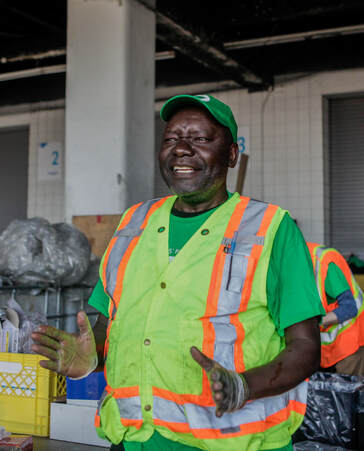
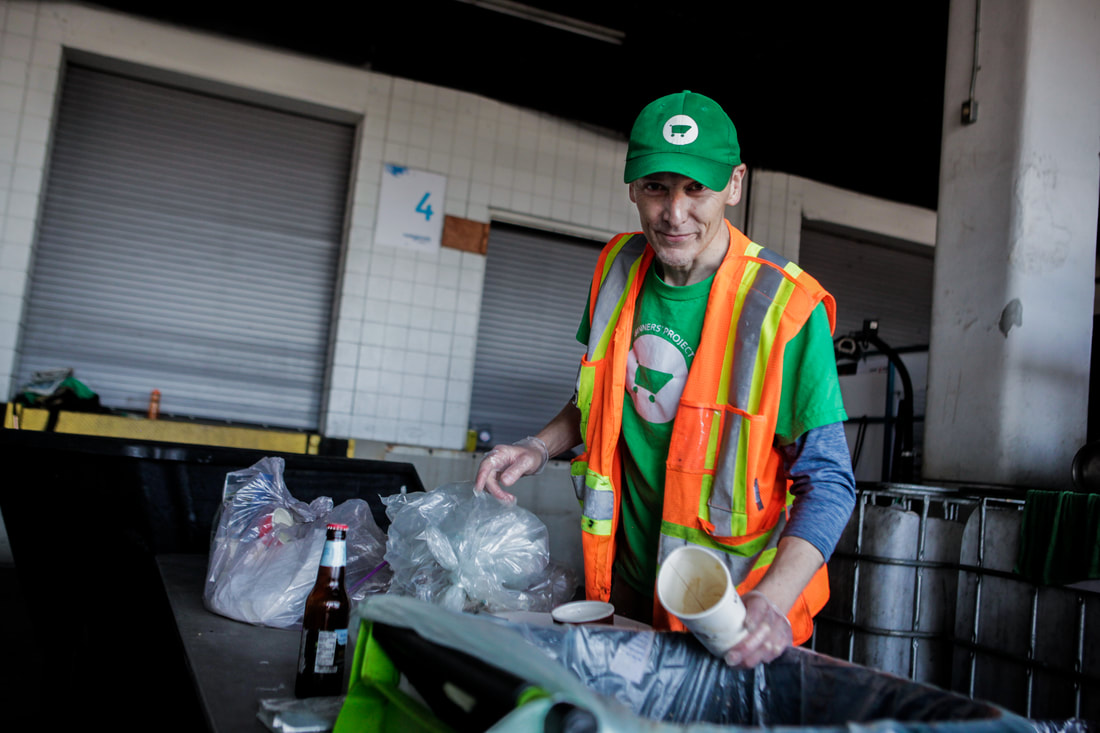
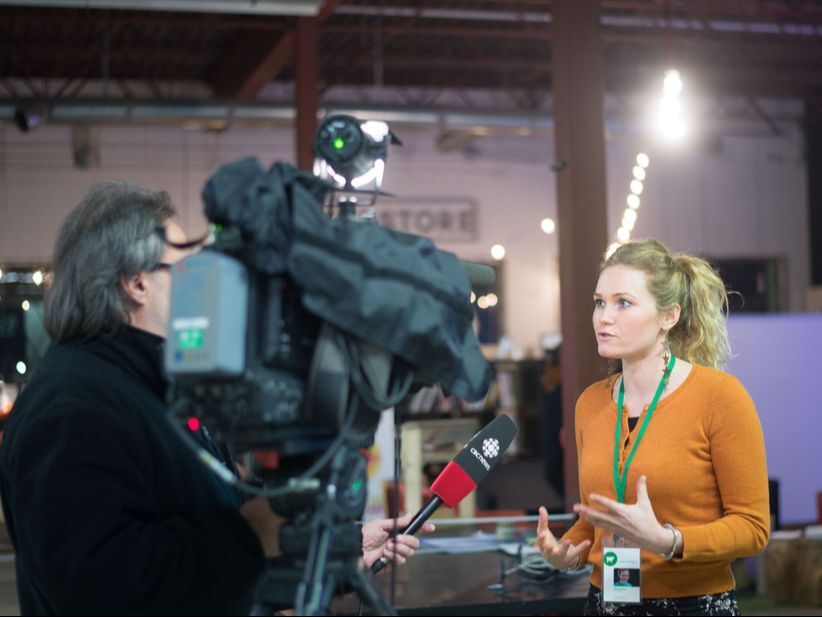
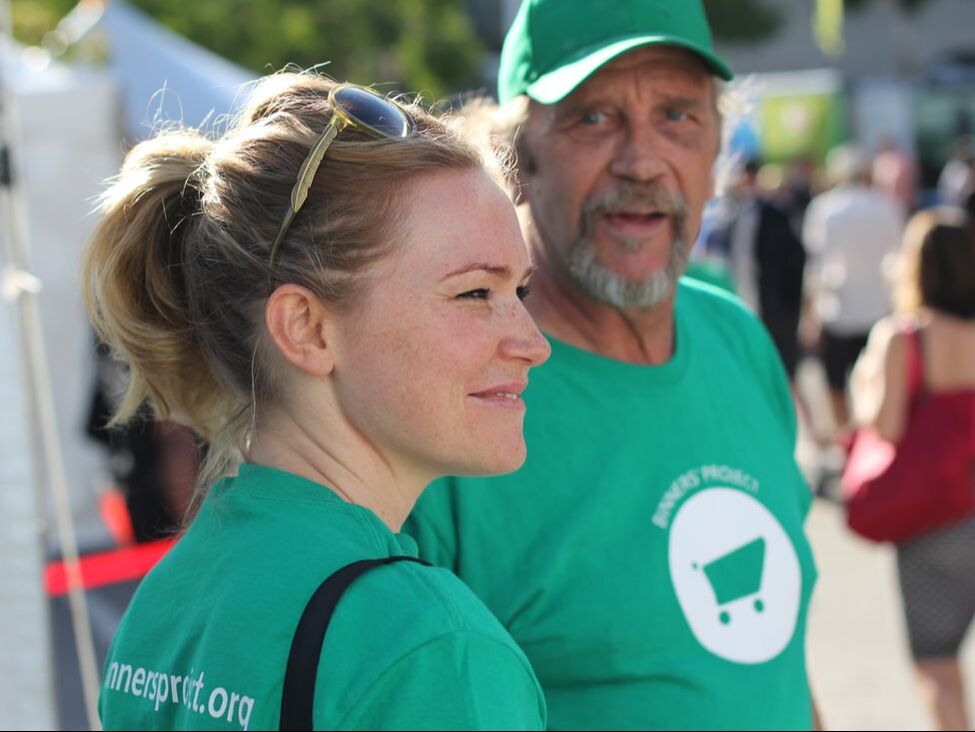
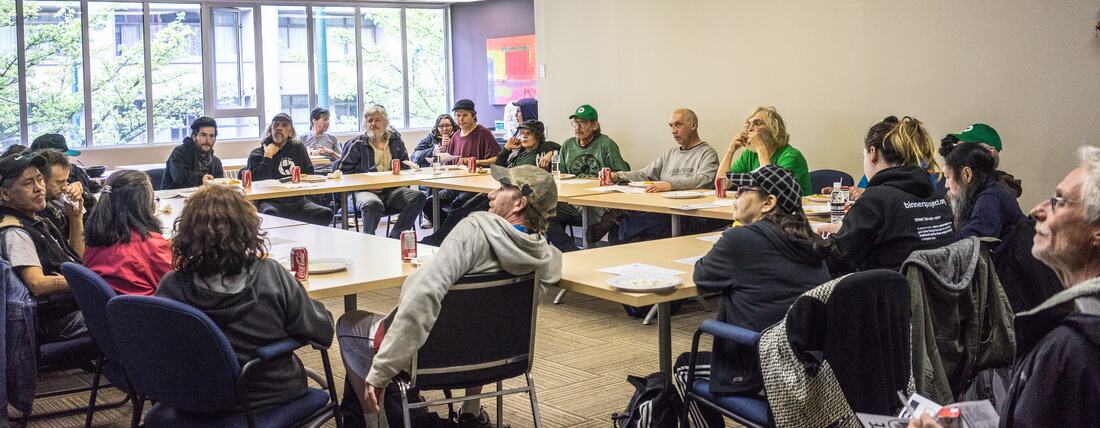
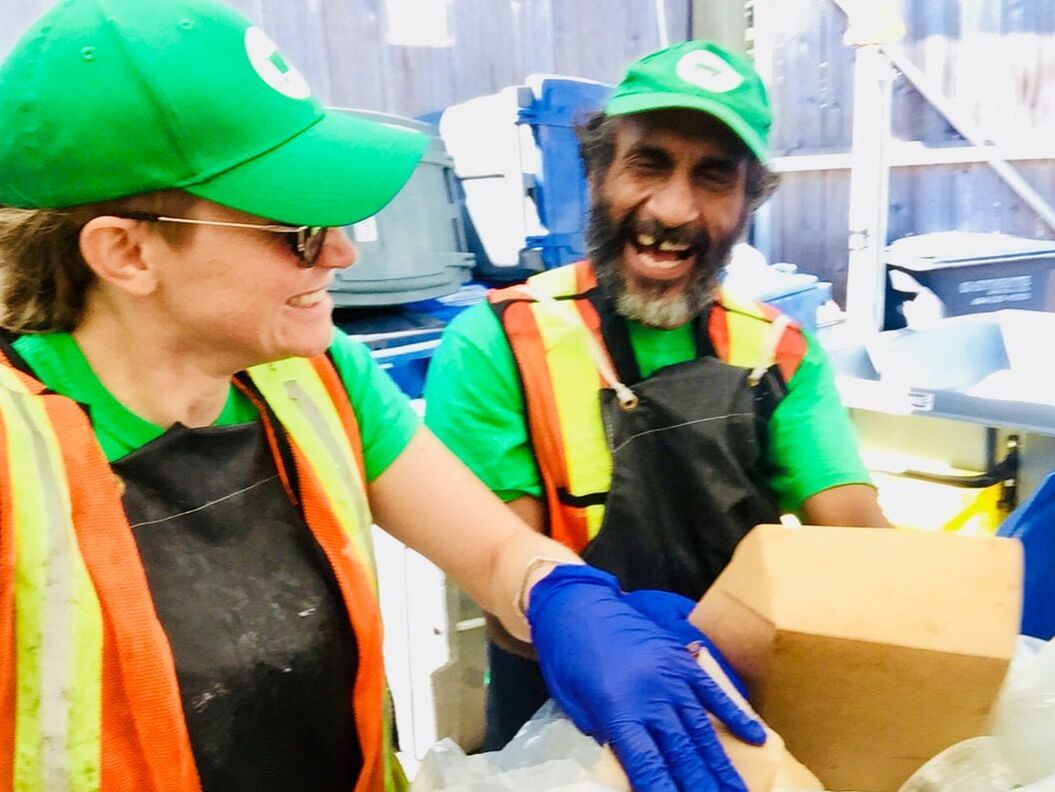
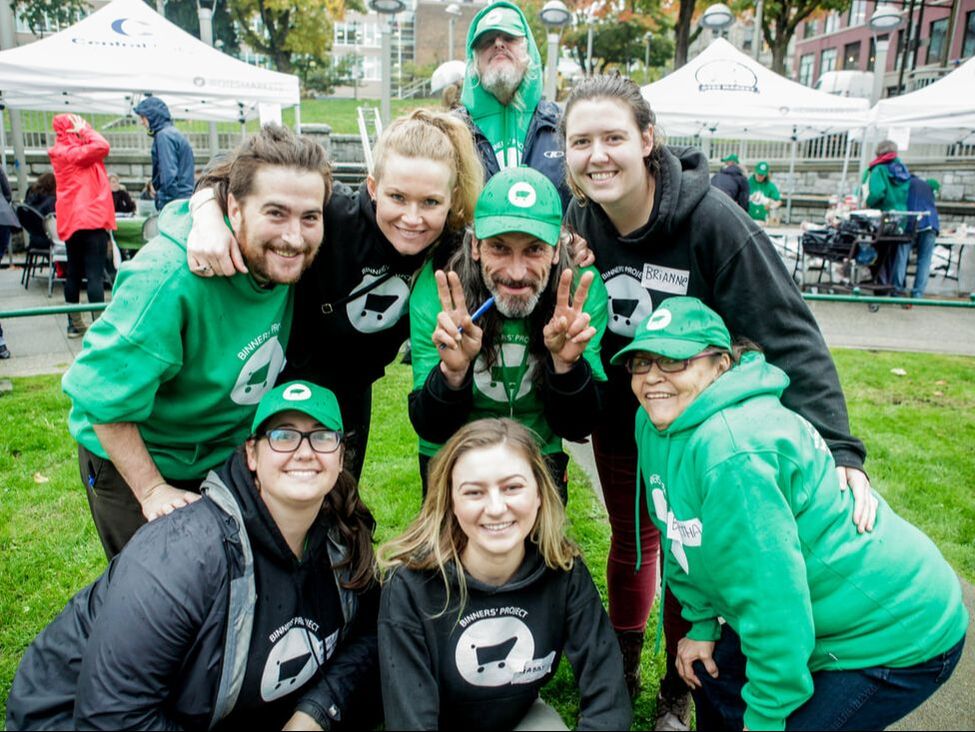
 RSS Feed
RSS Feed
